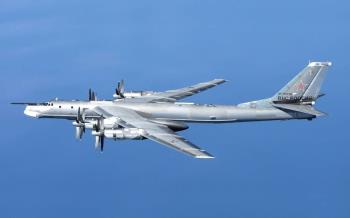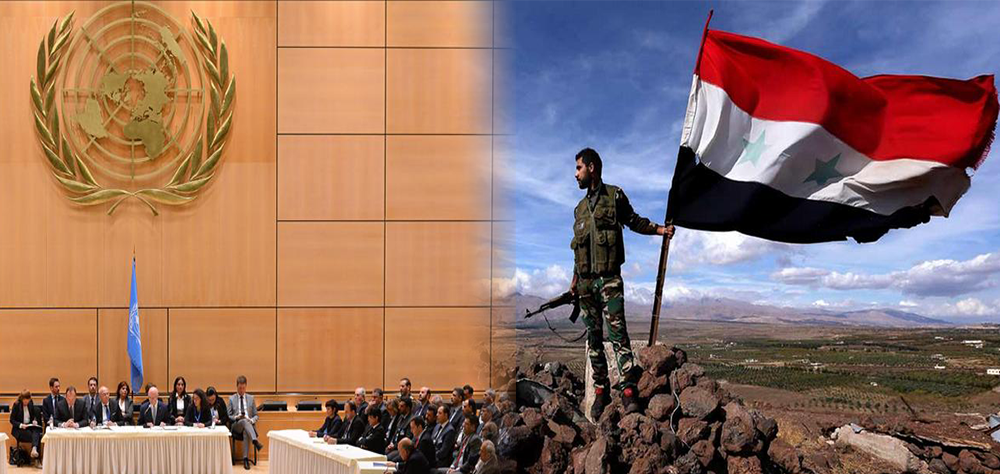Alwaght- More than 9 months after the last negotiations of the Syrian Constitutional Committee, on August 24, 2020 the government and other Syrian groups have once again come together, in the presence of James Franklin Jeffrey, the US representative on Syrian affairs, to hold weekly meetings regarding the constitution. The first meeting regarding the Syrian Affairs, was held in Geneva on June 30, 2012, by the former UN representative for Syrian Affairs, Kofi Annan, however the Syrian crisis remains unsettled and negotiations are ongoing to this day.
The aim of the Syrian Constitutional Committee draft, which consists of 45 members, is to make progress in drafting the new Constitution Charter and to co-ordinate the holding of a supervised election, under the support and supervision of the United Nations in accordance to the 2015 Resolution of the United Nations Security Council. The meeting of the Committee for drafting the Syrian Constitution is in a situation where many issues and tensions remain unresolved at the domestic level of the crisis and it seems that, like other meetings held in Geneva, these talks cannot lead to a comprehensive agreement. In outlining the new round of Geneva talks, several key issues can be discussed.
Internal extravagances and external interventions
Undoubtedly, the most important issue and challenge in advancing the Syrian constitutional negotiations is the extravagance of internal groups as well as foreign interference. In Syria, there are terrorist groups, with limited areas in Idlib and Aleppo under their command, who want to gain equal privileges with the central government and even share power with the approach of changing the political system according to their wishes and desires. This seems completely irrational both in terms of political weight and in terms of Syrian field equations. Given the realities on the ground in Syria, many Syrians now support Bashar al-Assad and the existing political system and have no desire for a major change in the constitution. But now the internal groups that have the least possible legitimacy among Syrian citizens are calling for an equal position that the draft constitution be conscripted according to their wishes and then voted on by the people during the referendum. This is definitely against the political arrangement of forces and in contradiction to the importance of different political factions. The most important symbol of this can be evaluated in the participation of Syrian citizens in last month’s parliamentary elections in the country.
On the other hand, foreign actors are intervening in the Geneva talks on a large scale, regardless of the political realities of Syria. Western nations, especially the US and Europe, are pursuing the goal of ending Bashar al-Assad's rule through the constitution and elections via the Geneva talks. In fact, their intention is to create and prepare a mechanism to overthrow the legitimate government of the country and to have a puppet government under their rule in Damascus. This is a process that is strongly opposed by the Syrian people and the Syrian government, which makes the future of the Geneva talks even more obscure.
The uncertain future of Idlib and areas outside the control of the central government
Another important obstacle to the Geneva talks can be considered as the issue of ending the crisis regarding Syria's field equations. At the current time, Syria faces three important issues concerning its field arena. Primarily, Idlib province has become a gathering place for terrorist groups, and practically no negotiations can be successful until the crisis in the province ends. Furthermore, the Turkish army has entered the northern regions of Syria on a large scale and has somehow occupied these areas. The action of the Turkish government can be considered as occupation and expansionism, which has violated the national sovereignty of an independent country. Turkey's presence in northern Syria will undoubtedly play a major role in the failure of the Syrian peace and constitutional negotiations. As long as the Turkish military and its supporting forces are present in the provinces of Idlib, Aleppo and Raqqa, the success of the Syrian Constitutional Committee cannot be exaggerated. Finally, a large part of Syria's territory (more than 20 percent) is illegally controlled by the Syrian Democratic Forces, or in other words, the Syrian Kurds, who are directly supported by American terrorists. Undoubtedly, the first precondition for the success of drafting a new constitution for Syria is the return of central government control over all regions of the country. Through the existing conflicts, Western countries, Arab countries, and Turkey are seeking to get big concessions from the central government, which do not match the field realities in any way. Therefore, as in previous times, one cannot be optimistic about the recent Geneva talks.



























